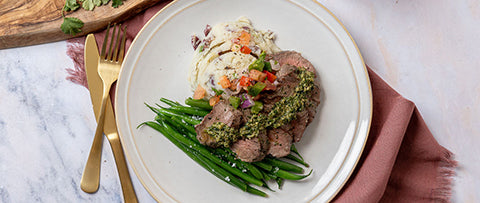Calling all moms to be! It’s no secret that your body goes through a ton of changes during pregnancy. The morning sickness, fatigue, weight gain, backaches, and expanding belly tend to take the attention off the importance of a healthy diet during these next nine months. Maintaining a healthy and balanced diet will not only help you feel better, but it has been linked to healthy brain development for babies, a healthy birth weight, and reduces the risk of complications such as gestational diabetes, anemia, and birth defects.
Now that you’re pregnant, your body has increased nutritional needs as you are now fueling your body for yourself and your growing baby. While you’re not necessarily “eating for two,” you should definitely be increasing the amount of certain nutrients your body needs to support you and your baby. Your doctor will more than likely suggest that you start taking a prenatal vitamin, so it is important to take note of which nutrients your prenatal vitamin contains as well as the amount of each nutrient. It’s also important to remember that prenatal vitamins cannot replace a healthy diet.
Important Nutrients
Calcium
Calcium is essential to your health whether you’re pregnant or not as it supports skeletal health, but now that you’re pregnant it’s even more important because it aids in building your baby’s bones as well. Plus, calcium will also boost muscle, heart, and nerve development. If you’re not consuming enough calcium for your growing baby, your body will begin to deplete its own calcium stores to support your baby’s growing bones, which could put you at risk for bone loss.
Pregnant women need about 1,000-1,2000 milligrams of calcium per day. This translates to about 4 servings of calcium rich foods a day. Below are some examples of calcium rich foods you can include in your diet to help meet your recommended daily calcium intake:
- Plain lowfat yogurt
- Cheese
- Milk
- Low mercury seafood and fish (salmon, shrimp, canned tuna)
- Dark green leafy vegetables
Folate
Folic acid is one of the most important baby building nutrients, also known as “folate” in food form. Folate is a B vitamin that is particularly important during the early stages of pregnancy. If you’re not pregnant yet and are planning to become pregnant, it is recommended to begin taking folic acid before getting pregnant. It can help prevent major birth defects of the baby's brain and spine.
It’s recommended that pregnant women get 600-800 milligrams of folate daily. Depending on the prenatal vitamin you take, it should contain at least 400 milligrams of your needed folate. Because folate is so vital to your baby’s development, it is important that you are also including some folate-rich foods into your diet:
- Dark leafy green vegetables
- Broccoli
- Avocado
- Asparagus
- Whole grains
Iron
Iron is another essential mineral during pregnancy. It supports your developing baby’s blood supply as well as your own and ensures that oxygen is supplied to the both of you. It is actually recommended that you double your iron intake when you are pregnant to avoid anemia, which is an iron deficiency that can lead to low birth weight and premature birth.
Pregnant women should get about 27 milligrams of iron daily. Anemia is very common during pregnancy due to the increased amount of blood that is being produced. Luckily, including iron-rich foods in your diet can help prevent a dip in your iron levels. Some good sources of iron include:
Protein
Protein is essential to building bones and body tissues such as muscles. It is also responsible for the growth, repair, and maintenance of cells. Your protein needs will increase as your pregnancy progresses.
Pregnant women need about 70-100 grams of protein depending on your weight and what trimester of your pregnancy you are in. Below are some good sources of protein you can include in your diet:
- Lean beef or steak
- Chicken
- Turkey
- Seafood
- Eggs
- Nuts and seeds
Fiber
The importance of fiber is often overlooked during pregnancy until it becomes a problem. And that problem is constipation. While you’re pregnant there is an increase of the hormone progesterone, which can relax your body’s muscles including your intestines. With your intestines relaxed digestion moves slower, often leading to constipation. It is recommended that pregnant women consume 25-35 grams of fiber per day.
Fiber keeps your digestive tract moving and regular. Fiber is also great to include into your diet when you are expecting because a lot of fiber rich foods are also nutrient dense, meaning these foods are high in nutrients and low in calories so you can pile up on the fiber! It is very important to remember that when you increase your fiber you also want to make sure you increase your water intake to avoid dehydration and difficulty passing stools. Below are some good options to include in your diet when increasing your fiber intake:
- Sweet potatoes
- Broccoli
- Avocado
- Quinoa
- Brussels sprouts
- Brown rice
Caloric Intake by Trimester
First-time expecting moms: if you didn’t know already, your pregnancy is broken down into three trimesters. First trimester is 0-13 weeks, second trimester is 14-27 weeks, and third trimester is week 28 to the end of your pregnancy. Your caloric intake is an important way to ensure that you and your baby are getting the right amount of nutrients.
First trimester
As a mom of one with another on the way, I've experienced my fair share of nausea and morning sickness and how it can make healthy eating challenging during the first trimester. Your body experiences an increase of hormones which can also trigger digestive discomfort and heartburn. Luckily during your first trimester you generally do not have to increase your calories from what they were before you became pregnant, unless recommended otherwise by your doctor.
Depending on your activity level and starting weight, it is pretty typical for expectant mothers to consume 1,600-1,800 calories per day during the first trimester. Your baby is still very small at this stage meaning his/her growing and energy needs aren’t as complex yet. So no need to be worried or beat yourself up for not piling on the calories if you are physically not able to at the moment.
Second trimester
For a lot of moms second trimester is when those pesky pregnancy symptoms like nausea and heartburn subside and your appetite begins to come back, just in time to up your daily calorie intake by 300-350 calories. This can translate to one small extra meal or snack a day such as oatmeal and a glass of milk, salmon and some veggies, or a smoothie.
Third trimester
During the third trimester or the “home stretch” as a lot of moms like to call it, you will need about 450-500 extra calories a day as this is when your baby is going to do most of their growing.
It’s important to remember that there are exceptions to these calorie increases. If you are underweight to begin with you may need more calories, and if you are overweight you may require less calories. Make sure to check with your doctor or a registered and licensed dietitian to help outline your daily calorie needs throughout your pregnancy.
Ways To Implement A Healthy Diet While Pregnant
Meal Prep
Being pregnant is often stressful enough--the last thing you want to worry about is what your next meal is going to be and whether or not it is going to cover your new nutritional needs. Preparing your meals ahead of time allows you to have healthy options on hand and stay consistent throughout your pregnancy.
You can take a few hours to plan your meals for the week or you can purchase already prepared healthy meals from a meal prep company like fit-flavors.
Snack Healthfully
A common symptom of early pregnancy is the quick onset feeling of hunger which can often result in nausea. Keeping healthy snacks on hand helps to combat this feeling as well as keep your blood sugars steady throughout the day. Snacking healthfully can also help to increase your energy and curb unhealthy cravings.
Eat A Variety Of Foods
Including a variety of foods in your diet not only ensures that you don’t get bored eating the same meals, it also helps you get all of the nutrients that you and your growing baby need. Choose fresh, whole foods over processed and refined foods. Make your meals as colorful as you can by incorporating different fruits and vegetables into your diet.
Track Your Food
Tracking your food daily helps you to make sure that you are not overeating or undereating. It also allows you to easily analyze your diet and make sure you are on track and receiving all of the important nutrients needed for your pregnancy.
You can simply track your meals with a pen and paper or download a food tracking app to your smartphone. Our dietitian recommends MyFitnessPal.
The Takeaway
Your prenatal vitamin will provide you and your baby with the basic nutrients needed to maintain a healthy pregnancy, but a healthy diet is the key to getting the most out of each and every important nutrient needed.
Each trimester of your pregnancy poses different needs for you and your growing baby.
Every woman and pregnancy is different from start to finish so it is always important to consult with your doctor or a registered dietitian to help determine the proper eating plan to ensure you get the proper nutrients.
Subscribe to get helpful nutrition resources like this one delivered to your inbox weekly.






